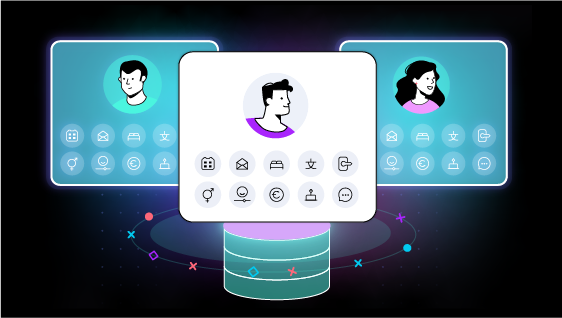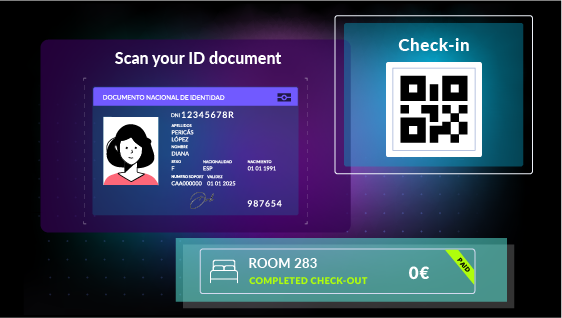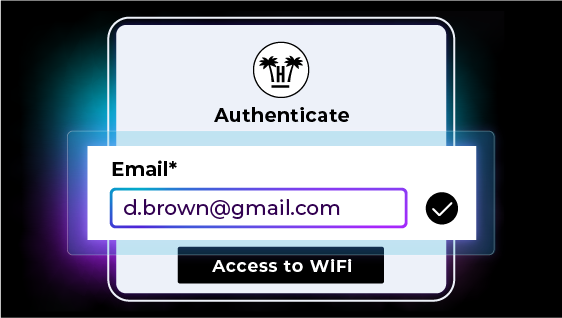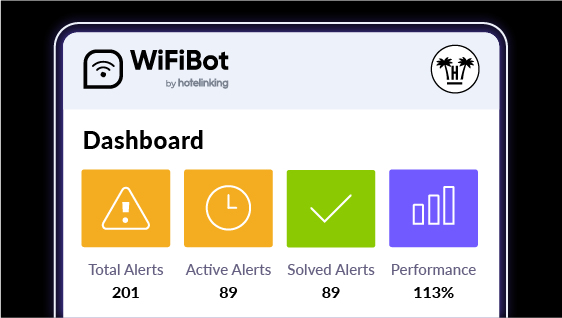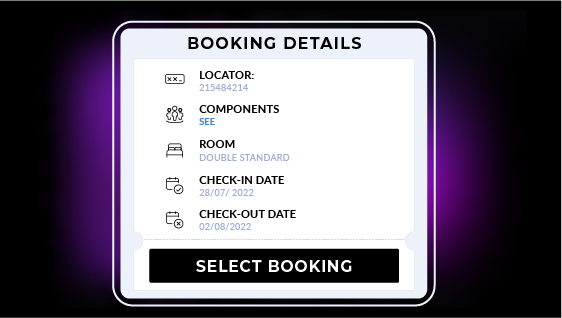
Attracting Generation Z to your hotel.
Being aware of who our customers are is key to ensuring successful sales in the medium and long term.
We are currently facing a very competitive landscape, where understanding who our guests are is fundamental if we are to implement appropriate marketing strategies. Knowing what their preferences and needs are can help you to significantly boost your direct sales, and ultimately, the revenue of your hotel.
Young people are now transforming consumption and communication more than any other age group. Knowing how much they spend, what inspires them, what motivates them when booking trips, what type of trips they prefer and what channels they use is very important if we want to create an offer in line with their needs and expectations.
People who fit this demographic profile, called Generation Z, have extensive technological knowledge, are impatient and easily frustrated. As guests, this makes them less loyal and more prepared and independent than previous generations. To capture the attention of this generation of digital natives, it is therefore crucial to have a strong online presence, and to offer them a smooth booking process and highly personalised promotions.
We recommend not underestimating this age group. Start focusing your marketing strategies to attract Generation Z guests, because hotels that understand this new generation will have a competitive advantage in the coming years.
Characteristics of Generation Z
People born between 1995 and 2015 are known as Generation Z or Centennials. They are not to be confused with Generation Y, also known as Millennials: while these groups share some characteristics, they have very different perspectives, habits and attitudes that affect their purchasing decisions.
Generation Z is the first generation of “digital natives”. In other words, this group has grown up completely surrounded by the Internet, so they use technology extensively, and are able to multi-task and use several screens at once.
Another important characteristic of this group is that they are pragmatic and demanding: having grown up in the Internet age, they can quickly classify and evaluate large amounts of information. They know straightaway when they are being sold something and can evaluate whether or not it is worthy of their attention.
On the other hand, they have new ways of inter-relating, often relying on social networks or text message which are as real as in-person conversations. They seek dialogue, interact with brands and communicate their tastes and interests, and are consistently present on social networks, particularly TikTok and Instagram.
In terms of consumption, Generation Z have increased awareness: ethical principles greatly affect their purchasing decisions. They wish to be fully informed before making decisions and are more interested in buying products that offer them the highest value based on their price and brands whichare in line with their own values (although they are not loyal to any).
Finally, they are used to making purchases online, to using electronic payment methods and to having 24/7 customer service available.
Generation Z travel preferences
A recent study carried out by the European Tourism Commission revealed that travel is the main hobby of almost 50 % of the surveyed Generation Z people. This means that travel has become an important part of contemporary culture and that members of this group have the potential to be the most active to date.
The fact that they are permanently connected and share experiences in real time plays an important role in their travel decisions, in inspiring them and expanding their aspirations. In fact, this report highlighted that 42 % of the surveyed young people chose a destination based on their social networks. This generation uses social media to find places to eat, drink, visit and explore, and prefers to trust an influencer rather than a celebrity because they inspire more confidence.
Instagram, Tik Tok and YouTube determine where Generation Z travels, and influencers are the new travel guides.
This inclination to use technology is also reflected in how they organise and manage their trips, including the way they search for restaurants, addresses or places of interest, or share their experiences on social networks. Smartphones are the most important devices for Generation Z, so you will need to make a substantial effort to satisfy their demands, creating seamless experiences that allow them to plan and book every aspect of their trip online.
Another study carried out by Braintrust showed that the new generation of travellers wish, above all, “to experience the destination like the natives”. This interest in authenticity, for all things local, leads to a desire to discover aspects of urban culture, the local way of life, typical gastronomy and the heritage of their chosen resort. This may be due to the fact that Generation Z is the most diverse generation in terms of ethnicity and beliefs and is a generation that embraces different cultures and is curious about the distinctive elements of a destination.
Generation Z opts for trips that prioritise the experience over the price, although price is also a decisive factor when booking. They tend to stay in hostel-like properties, tourist accommodation, bed & breakfasts or youth hostels. Eco-friendly, adults-only, and gastro-hotels are also popular among these travellers because of the experiences they offer. Online agencies are the most popular channel used for booking (43 %), followed by direct channels (26 %), according to the European report.
How to attract Generation Z tourists
1. Sharpen up your property’s technology
This type of tourist values digital experiences and expect these to be top-quality and frictionless. They wish to be able to connect from any device and at any moment, from the time they initiate the booking process to the end of their stay. To make this possible, it is essential to opt for technologies that help to satisfy these guests more, to encourage them to return and to leave positive recommendations on opinion portals.
In this sense, a hotel’s most valuable technology is its Wi-Fi network. Being permanently connected and sharing experiences in real time is almost a vital necessity, a basic activity that Generation Z does when travelling. You must therefore ensure that your property has a suitable infrastructure for a fast and secure connection. You cannot skip audits – these are necessary so that you can become aware of the network’s status and identify if you need to make any changes to the installation.
To offer a consistently good connection, it is also important to continuously evaluate the infrastructure and how it runs, because even if you have an optimal installation and its components are seemingly in a perfect condition, some network malfunctions may still be possible. For this, advanced tools such as WiFiBot automatically solve such internet connection problems without the need for a technician.
Other technologies that more and more hotels are investing in are those aimed at creating an environment conducive to interaction, automation and customisation. These are digital solutions such as in-room entertainment systems, remote temperature control, keyless room opening, smart lighting, and content transmission systems from devices to television, etc.
Accustomed to digital consumption and the use of technology and applications, the Generation Z traveller values the availability of new technologies that help him or her to manage aspects of a trip from a mobile, such as online check-in and check-out systems: a solution that simplifies the guest’s check-in and check-out process, among other benefits. In this case, it is not the receptionist but the guest who completes the registration form on an online website or application, using any device. There are more sophisticated systems, such as Autocheckin, which allows any customer, regardless of the channel where they have made the reservation (direct channel, Travel Agency or Tour Operator), to complete the process.
2. Building a strong digital presence for your hotel
Social networks, blogs or specialised websites are the main channel used by these new travellers to collect information and recommendations, plan their trip and, fundamentally, to share their experiences with other users. Other peoples’ experiences will therefore significantly influence their decision making.
As a hotel owner, it is essential for you to know whether you are offering your guests a satisfactory stay in order to influence their perceptions and to take action to improve. We recommend implementing preventive measures to anticipate negative reviews and to reduce their impact on opinion portals. To do this, the satisfaction surveys sent during a guest’s stay will help you to detect unhappy customers and resolve potential incidents in a timely manner.
You can therefore prevent unfair reviews and negative opinions and turn these positive – when an unwanted situation is resolved quickly, the customer is doubly satisfied. This in turn will influence the quality of the comments they may write on opinion portals, After their stay, it is also essential to encourage guests to share their experience on TripAdvisor or similar. This will help to improve your property’s online reputation and to convey a positive image.
At the same time, you must be aware of your hotel brand’s positioning on other online channels and create the brand image that you want to transmit, highlighting all the aspects that make it unique. You must therefore make the most of the potential of social networks to engage with Generation Z travellers: discovering what they think of you and understanding what they want from your brand will allow you to better interact with your target audience to inspire them, influence their decisions and take advantage of this power to redirect traffic to your hotel’s website.
It must be consistent with the brand image and offer a positive user experience: the average time Generation Z’s attention is about eight seconds, so your website has to be visually attractive, informative and easy to use to make them stay on your page, turning website visitors into guests.
3. Customise your offers to maximise loyalty and attract guests
It may seem difficult to build a fruitful relationship with these travellers, as we are facing a generation exposed to a lot of information and different stimuli. However, Generation Z actually remember advertising content better than previous generations, paying special attention to offers (price is a decisive factor in encouraging them to book). The key is to have content that is relevant and specially designed for them. Being clear about the interests and tastes of this profile could be what makes a loyalty strategy a roaring success or a complete failure.
A good starting point is to promote a loyalty programme that rewards them directly with really attractive gifts or discounts. And we’re not talking about a points system, we’re talking about instant rewards: when guests arrive at the hotel, it’s an excellent opportunity to kindle a direct relationship, so offering them perks or discounts that they can redeem against future bookings is a good option here.
A hotel CRM, like the one offered by PUSHTech, can then help you take your relationship with your guests further, implementing loyalty and marketing campaigns via email. For example, automated personalised communications, such as birthday greetings and thank you messages, without promo codes or sales-oriented messages: experience tells us that these gestures help keep customers engaged.
You can also launch campaigns to encourage guests to return. Offers with interesting proposals and attractive images will attract the attention of these travellers. For example, it is very common to highlight leisure activities in the place where the property is located, such as places of interest, cultural activities, gastronomic offers or even local parties that the target audience is not aware of. This annual campaign planning can inspire your hotel brand.
The CRM will allow you to use the information stored about guests to create groups and customise these emails, adapting the message to their interests and needs, so that contacts feel more identified with what is being offered. At this point, having a customer data collection tool is critical to building a verified guest database with basic contact information that allows you to build complete profiles and complete these loyalty actions.
As well as safely and quickly collecting this customer data, systems such as a Captive WiFi Portal can boost the potential of the loyalty programme and strengthen the strategy. This captured data can be combined with the information in the hotel PMS, to segment the database as much as possible, and integrate it into the CRM.
In short, to connect with this generation it is necessary to study their interests and behaviour traits to create memorable experiences that make your property stand out in their memories or be a brand that they are faithful to. Communicating your brand values, adopting new technologies and hyper-personalisation of experiences will make you stand out from your competitors, gaining the trust of the next generation of travellers.
